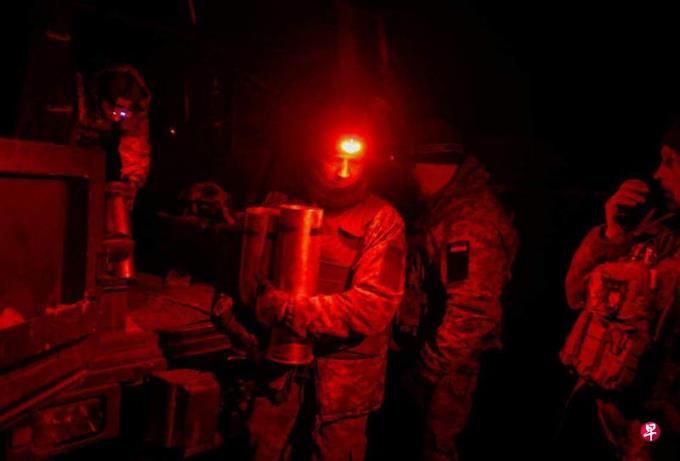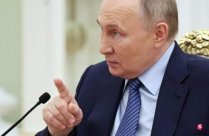
Although the era of change has created objective practical conditions for the eradication of the war, it can be theoretically proved, but this does not meanKnow.
"This is not the era of war!" In September 2022, in the Shanghai Cooperation Summit held in Samalham, Indian Prime Minister Modi said to the Russian President Putin.The most insightful or even only insight.Other politicians may also say something correct, but almost all political words.Unfortunately, Modi just expressed his intuition and insight in the changes of the times, but did not specifically clarify.In fact, based on the two perspectives of war and the instrumentality of war, it can surpass the utopian peacefulness and rationally arguing -the era of the Great Changes can indeed eliminate war.
The moral cost of war is getting higher and higher
War is a violent means to obtain benefits.However, there is no right or wrong because of the irregularities, that is, the rules give the incident with morality, so that the incident is right or wrong, and the general rules of restricting war in human history.Sleeping, war is just a tool for solving problems.For example, in the history of the Beroboonia war, the "three most powerful motivations" that drive the Athens to expand is "fear, honor and interests", and war is just expansion tools.
Before Westparia and the Treaty, the country only acted according to its own interests, and the war was almost unrestrained by the rules, so there was no right or wrong."Although the traditional Westparia system has indeed established a national order based on the national recognition of sovereignty, the Europeans have never strongly realized that the war is or illegal.The war of war launched by foreign governments is common -they are the "national policy". This situation has not changed in the 20th century. "In the 20th century, the cruelty of the two world wars gave birth to the international alliance and the United Nations, and gradually formed a restrained rule for war.This is a huge progress.
The value of the tools of war is getting lower and lower
Of course, this rule is low in binding to the great power (such as the Soviet Union and the United States), so it is trapped in the predicament that the ancient Chinese pointed out more than 2,000 years ago-Chuan Xianggong was eleven years), but if the great national crime, who would be discussed?Although this dilemma still exists, the establishment and improvement of international rules have increased the moral costs (such as condemnation, sanctions, blows, etc.) to launch war, which will help curb war.Otherwise, like Russia's invasion before the 20th century, the United States can easily swallow Canada and Mexico today.
Not only the moral costs of war are getting higher and higher, but after the 1970s, after the 1970s, because human beings entered the era of great changes, the value of the tools of war was getting lower and lower, and it became an increasingly increasingly economic means.What is the purpose of war as a tool?Get wealth.Wealth occupies a hub in human happiness.To this day, most human behaviors are based on how to obtain wealth, including many concepts and emotions are derivative of wealth.Take a step back, even if wealth is not the only goal of war, it is also the most important goal.Prior to World War II, due to the high localization of production (that is, as far as possible, material as much as possible, and local production to reduce production costs), occupying land and its derivative forms (such as geography) was the best way to maximize interests.As a result, in human history, the war surrounded by land contention continued.
However, after World War II, the progress of scientific and technological development and global trade rules has made production increasingly beyond territorial limitations (this is the advent of the post -territory era), and it is manifested as the increasingly localized production and forms a second wave of globalization in a macro.EssenceThe importance (weight) of science and technology, capital, and management in the production of wealth is getting higher and higher, and the importance of territorial and geographical is getting lower and lower.Therefore, any country, company, or individuals can use global resources to obtain wealth without having to occupy specific land, which has led to increasingly de -territorialization of wealth, and the relationship between territory and wealth is becoming weaker and weaker.The front examples such as Singapore, South Korea, Japan, and many developed countries and regions with small territories.China, India, etc. are also beneficiaries of wealth production and territorialization.Before World War II, it was difficult to imagine that the raw materials in Australia and Brazil could be shipped to China for production, making China a "world factory" and a significant improvement of economic level.The most typical negative example is Russia. It has the world's widest territory and the richest resources in the world, but the economic situation has deteriorated.
Fortune production de -territorial or globalization makes humans find a more economical way to obtain more economical wealth, which is the key reason for the decline in the tool value of war.Therefore, today, the once World War to launch countries Germany, Germany, Japan, etc. to use globalization to become or re -become developed countries, it is difficult to imagine that they will launch a war of aggression.In the same way, before World War II, we cannot imagine that poor and poor countries such as Singapore and South Korea can use globalization to become developed countries like today.From this, you can ask: If a country can become a developed country through the development of economy and trade, it is necessary to have a good life?
Does this mean that the possibility of war is significantly reduced?Therefore, the argument of "peace and development is the theme of today's era" proposed by Deng Xiaoping, it is still applicable to this day and even more applicable.
The era of change can eliminate war
War caused countless deaths and property damage to humans, so humans expect peace to try to eliminate war.However, in the past human history, even if the war was stopped briefly, it would always come back.Therefore, it is hated and cannot be destroyed -this contradiction is the tragedy of war as a human fate.However, in the era of great change, the elimination of war is no longer a romantic utopian fantasy, but with realistic conditions and corresponding theoretical support: on the one hand, the moral cost of war is getting higher and higher; on the other hand, the value of the tools of war, the moreThe lower the coming, the combination of the two caused the war to be destroyed (the war here only refers to traditional hot war, without scientific and technological warfare, trade war, public opinion war, etc.).Since human beings have developed more economical wealth acquisition than war, why is it still to launch war?
However, as I repeatedly borrowed a Predito's point of view: "A specific political behavior does not depend on the authenticity of a proposition, but it depends on people's views on these behaviors." This principle is almost applicable to everything.field.The basis for people's behavior is not a fact, but cognition.Although the human body has entered the post -territory after the post -to -territory, and even entered the era of a larger scale (fact logic), the mainstream concept is still limited to the traditional territory view, geography, and war view (cognitive logic).The world's main powers such as Russia and the United States still stay in World War II.NATO's retention, strengthening, and eastward expansion, the Russian and Ukraine War, the Taiwan Strait crisis, etc. are all products of traditional territory, geography and war concept.
Although the era of change has created objective practical conditions for the eradication of the war, and can be theoretically proved, this does not mean that war will definitely be eliminated because it is not facts that determine people's behavior, but cognition.
Therefore, it should be the concept of changing Putin and Bynden!
The author is a professor at the School of International Relations of Sichuan University




